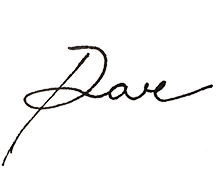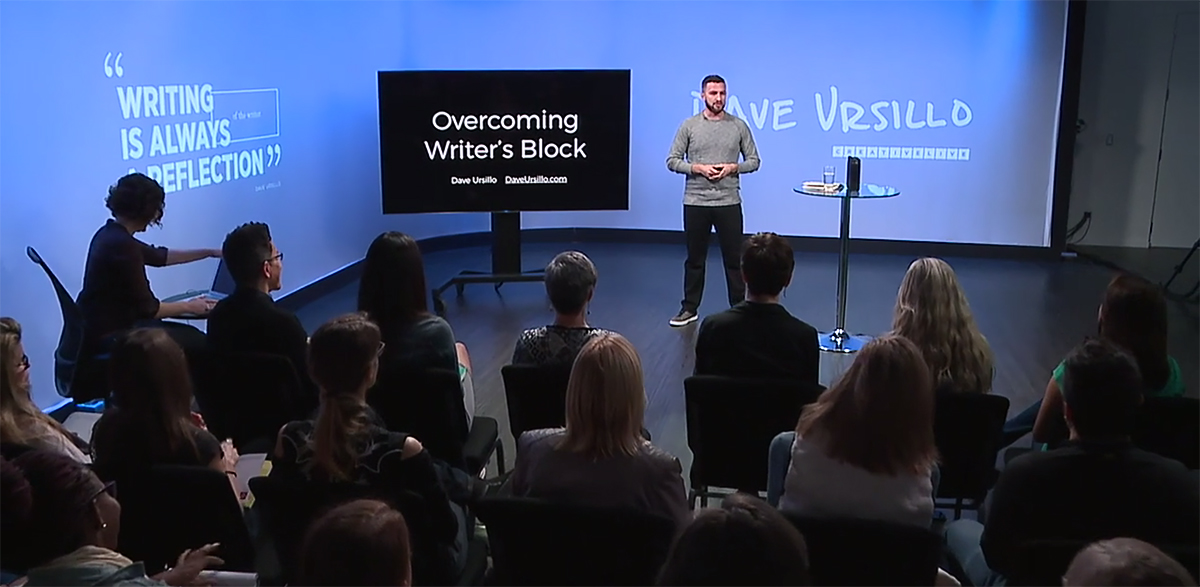She started to stumble over her words.
Her gaze tilted up and away from me, searching.
She began to delicately turn her hand at the wrist as if to sieve through all the wrong responses, hoping she might happen upon the right one.
Being that there were lights and cameras on me — and a director counting the minutes remaining in my live workshop’s broadcast — those moments of silence felt as if they went on for ages.
But I waited. I wanted the audience member to find her own words, without feeling rushed along — or worse, like I was speaking over or for her, if I was to hurry and fill the quiet.
In a millisecond of doubt, I questioned if what I had asked of her — “Despite the risks, despite the concerns, why does sharing your whole truth in writing matter to you?” — was a fair prompt, at all.
It would be a tough question to answer on its own. And now, there were lights and cameras on her, too — an audience of 30 awaiting her response, and me, and a production team, and who knows how many people streaming the workshop live from home.
Fearing I had set an unintended trap, I offered a suggestion:
“…is it because you are called?”
In a single motion, her gaze dropped from sky to earth; her whirling hand dropped by her side, relaxed; she exhaled a relieved Yes of agreement.
“Because I am called,” she said.
Creative practices like writing instigate confronting questions. In my writing course, Unavoidable Writing, I share a list of the top 30 most common questions and concerns that I’ve heard writers express over the years (pssst, that course re-opens in just a couple of weeks for the first time since January!).
Of all the questions and concerns that we writers are bound to have, the most common (and confronting) questions are why we do what we do, at all.
All it takes is one particularly uncomfortable moment to spur on an outright existential crisis. A wormhole of concern brings you ever deeper, prompting inner debate like,
“Why am I doing this to myself? Why invite the risk? Why create uncertainty? Tempt judgment? Provoke exposure?”
Before long, a mental-groove — like a over-worn path in our mind’s eye — is formed. We begin to feel as though our creative practice is literally threatening our wellness, safety, stability, control of life, or the gentle balance we’re striving to maintain, day-to-day… since, after all, the practice is what eggs on such daunting thoughts.
So why do we do it?
In short? Because we are called.
That’s why the audience member at my workshop was bothering to navigate all of the discomfort of writing the full, whole, authentic truth of her memoir — even if sharing that truth meant, as it sometimes can, potentially jeopardizing relationships with friends, family, or partners.
She was called.
And that was the only necessary explanation. For me. For the room full of fellow writers. For the production team and staff behind the scenes at CreativeLive.
She was called. She had to listen to the call.
I could have said,”If you’re nervous, if it makes you feel uncomfortable, or if you think you’re risking too much? Then don’t. You don’t have to say any of it. It’s just writing, after all. It’s just a story. Someone else has probably told a similar one, already.”
All of that would be factually accurate. (At least, in theory.)
And yet, such an answer wouldn’t have been spiritually genuine:
- Dishonoring the call would not bring her any closer to the truth she had been called to share her true.
- Leaving the call unanswered would not help her to bear her colors.
- Ignoring the call would mean some part of her remaining hidden; unexpressed; unrealized; shadowed in fear; buried in What Ifs.
We all deserve more than that.
Even when it seems to defy logic, reason, or rationality, it’s only by listening to the calling of The Creative that we may begin to harmonize our inner world with our outer world.
If you are called to The Creative, friend — please, listen.
Please keep listening.
Please answer the calling. I believe it means to speak to you. I believe it means to speak through you, so that your inner world may find more harmony with your outer world.
As a collective, our whole world will be the better for it.
Yours in writing,

PS – If you would like to learn how to cultivate more of a sense of home, harmony and wholeness through the art of written word, stay tuned. My writing course, Unavoidable Writing, is coming back in a few weeks. Inside, you’ll learn:
- The Three Shadows of Writing: How to identify shadow behaviors that hold you back in your writing, plus, how to heal and transcend them through writing
- The Three Promises of Writing: How to embrace the ultimate potential of expressing yourself fully in your life (and, refusing the plight of remaining unexpressed)
- How to Turn Your Resistance Into Refuge: Dozens of prompts, exercises, and tools to turn your personal journal into a self-support system on and off the page
If you’re a subscriber to my newsletter, you’ll be eligible for a limited 10% discount. Sign up below if you aren’t already!
